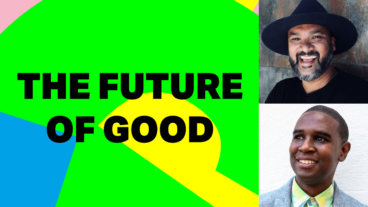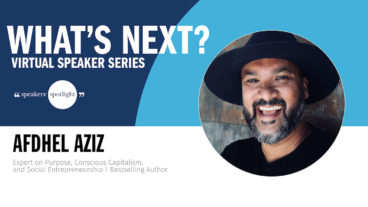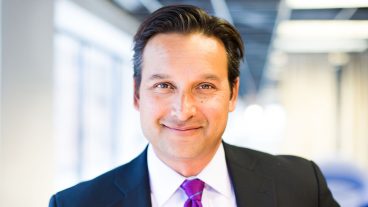Alex Edmans has spent almost four decades analyzing hundreds of companies across dozens of industries to determine if those that prioritize social purpose are more successful than their profit-geared peers. The answer? Purpose drives success.
A professor of finance at London Business School, Alex’s research became the foundation of his most recent book, Grow the Pie: How Great Companies Deliver Both Purpose and Profit, as well as his most recent TEDx talk, “The Pie-Growing Mindset”.
In this talk, Alex showed how organizations that pursue a pro-social purpose yield more profit in the long-term than those that pursue profit over society. Serving society doesn’t just have a moral and ethical case, he said, it also has a business and financial case.
The Fixed Pie Mindset
The value a company creates is divided between profits to investors and value to society, Alex said. This is the “pie”. Many business owners view the pie as fixed, and that the only way to increase profit is to take from society — charging customers as much as possible; paying employees as little as possible; taking from the environment through pollution, deforestation, and global warming, etc.
The obvious answer, Alex continued, is to take back the pie by heavily regulating business so that it can’t make too much money and there is more for the rest of us. But this doesn’t work either, he said, because profits play a key role in society. It benefits investors that include people saving for their kids’ education and retirement, as well as endowments for universities, hospitals, charities, etc. Society needs these profits as well.
We can’t keep having this constant fight between society and investors, Alex said, where everyone is “squabbling” over a fixed pie. We need to find another way.
The Pie-Growing Mindset
The company Vodafone is an example of “another way”. They noticed that their customers in Kenya were using their phones to transfer mobile minutes as currency, Alex said. This sparked an idea — they wondered if they could create the technology that would enable their Kenyan customers to transfer money through their phones instead of mobile minutes.
At the time, 50 million Kenyans did not have access or use of banking institutions, Alex said. They relied on cash that could be stolen, forged, or lost. If Vodafone could pull this off, he continued, the social impact would be huge.
After four years of development, Vodafone launched M-pesa, a mobile money service that transformed people’s lives, Alex said. Within seven years, it lifted 200,000 households out of poverty by giving them access to finance. Many of these households, he continued, were headed by women and this service helped move them out of agriculture into business and retail, which resulted in a large effect to gender equality as well.
When Vodafone launched M-pesa, Alex said, its goal wasn’t to make money; it was to solve a social problem. Afterwards, he continued, they found a way to monetize this service, which benefited investors even though profit was never the primary objective.
M-pesa, Alex said, represents the other way — the pie-growing mindset. Through creating value for society, a company doesn’t have to sacrifice profit, they are choosing to grow the pie and ultimately grow their profit.
This is just one example that Alex gave during his talk. His research saw him analyze hundreds of companies across dozens of industries over several years to determine if social-driven purpose out-performs profit-driven purpose. He focused on Fortune’s list of the “100 best companies to work for” in America with his initial analyses spanning 28 years. This was then extended for another nine years.
Collectively, these “best companies to work for”, Alex said, delivered shareholder returns that beat their peers by 2-2.7% per year over a 37-year period. That is 213-265% compounded.
“The power of the pie-growing mindset,” Alex said, “is that it frees us from having to motivate every decision with a financial calculation. Instead, the motivation is to build a better world, and that spurs us to create, to discover, to explore, to come up with ideas that ultimately end up profitable. But we could have never predicted the profit from the outset, because it’s hard to forecast more than several years out and because profit often comes from sources that we never expected.”
Watch Alex’s fascinating TEDx talk below to learn how both leaders and individuals can drive social change within their organizations to yield long-term success:
Described as a “fresh voice on finance and investment strategies — and much more” by Thinkers50, Alex Edmans has a PhD from MIT as a Fulbright Scholar and was previously a tenured professor at Wharton and an investment banker at Morgan Stanley.
Currently a professor at London Business School, Alex has spoken at the World Economic Forum in Davos, testified in the UK Parliament, and given the TED talk “What to Trust in a Post-Truth World” and the TEDx talk “The Social Responsibility of Business” with a combined 2.4 million views.
Specializing in corporate and behavioral finance and responsible business, Alex shares practical insights to help audiences successfully navigate business and finance in the 21st century.
Interested in learning more about Alex and what he can bring to your next event as a keynore speaker? Email us at [email protected].




